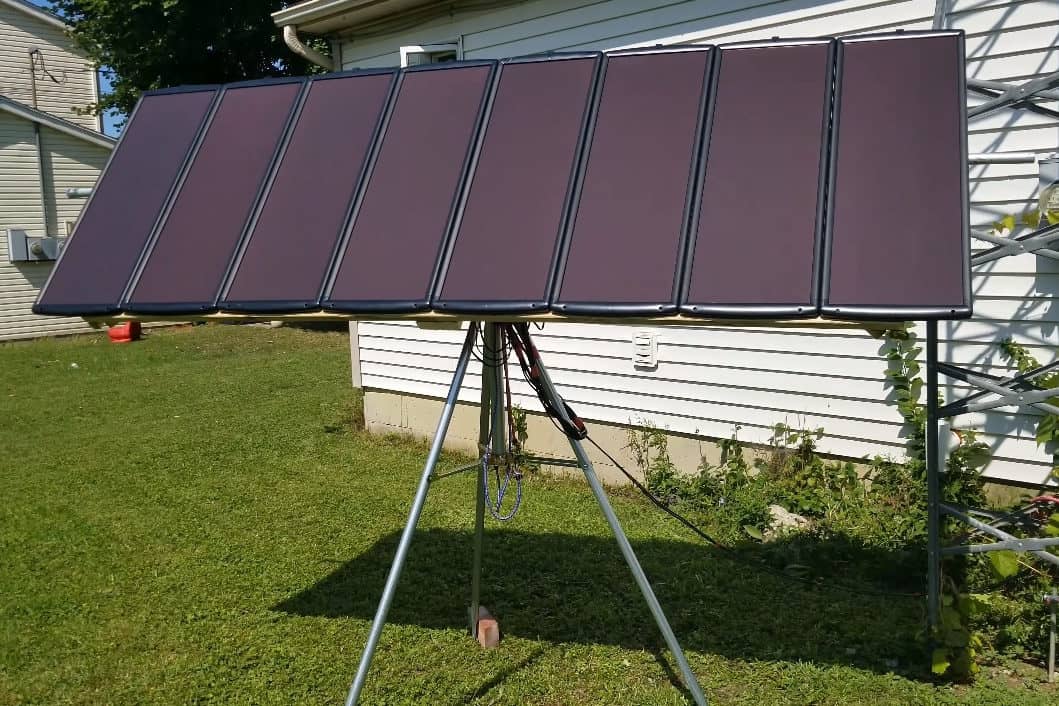With Harbor Freight solar panels discontinued, the solar energy market faces a shift, impacting customers and competitors alike. This decision raises questions about supply chain issues, alternative options, and the future of solar energy accessibility.
The discontinuation of Harbor Freight solar panels has sent ripples through the industry, leaving customers seeking alternatives and analysts pondering the broader implications.
Harbor Freight Solar Panel Discontinuation Announcement
Harbor Freight has officially announced the discontinuation of its solar panel products, effective immediately. This decision was made due to a combination of factors, including supply chain disruptions and low demand.
Supply Chain Issues
The ongoing global supply chain crisis has significantly impacted the availability of raw materials and components necessary for solar panel production. This has led to increased costs and delays, making it challenging for Harbor Freight to maintain a consistent supply of solar panels.
Low Demand
In addition to supply chain issues, Harbor Freight has also experienced a decline in demand for solar panels. This is likely due to the increasing popularity of more efficient and cost-effective solar panel alternatives, such as those from online retailers.
Customer Impact and Alternative Options

Harbor Freight’s discontinuation of solar panels affects customers who have purchased or intended to purchase these products. Existing customers may face challenges in obtaining replacement panels or servicing their systems, while potential customers will need to explore alternative options.
Customers seeking solar panels can consider various alternatives, including:
Other Retailers
- Home Depot: Offers a wide range of solar panels from reputable manufacturers.
- Lowe’s: Provides solar panels suitable for residential and commercial applications.
- Costco: Sells solar panels in bulk, offering cost-effective options.
Online Marketplaces, Harbor Freight solar panels discontinued
- Amazon: Hosts a vast selection of solar panels from different brands and price ranges.
- eBay: Provides a platform for both new and used solar panels.
- SolarReviews: Connects customers with reputable solar installers and offers unbiased product reviews.
Market Implications and Industry Analysis

The discontinuation of Harbor Freight solar panels is expected to have a significant impact on the solar energy market, both for competitors and the overall industry landscape.
The absence of Harbor Freight’s low-cost solar panels may create opportunities for other budget-friendly solar panel providers to gain market share. Smaller companies and startups specializing in affordable solar solutions could benefit from this shift in the market.
Implications for Competitors
Direct competitors of Harbor Freight, such as Renogy and Goal Zero, may witness an increase in demand for their products as customers seek alternative budget-friendly solar panel options. These competitors may adjust their production and marketing strategies to capitalize on this opportunity.
Larger solar panel manufacturers, such as SunPower and LG, may face less direct competition in the budget segment, allowing them to focus on premium products and target higher-end customers.
Overall Industry Landscape
The discontinuation of Harbor Freight solar panels could lead to a slight consolidation in the solar energy market, with smaller players potentially merging or being acquired by larger companies. This consolidation could result in fewer budget-friendly options for consumers.
Additionally, the absence of Harbor Freight’s solar panels may impact the overall growth of the solar energy market. Harbor Freight’s low-cost panels made solar energy accessible to a wider range of consumers, and their discontinuation could slow down the adoption rate of solar energy.
The discontinuation of Harbor Freight solar panels has left many consumers seeking alternative options. For those located in Texas, Solar Panels Texas Buyback: Powering the Lone Star State provides a comprehensive guide to navigating the state’s solar buyback programs. These programs offer financial incentives to homeowners who install solar panels, making them an attractive investment for Texans looking to reduce their energy costs and contribute to a cleaner environment.
Despite the discontinuation of Harbor Freight solar panels, Texans can still reap the benefits of solar energy through these innovative buyback programs.
Last Point

Harbor Freight’s solar panel discontinuation marks a turning point in the solar energy landscape, underscoring the challenges and opportunities that lie ahead. As the industry evolves, customers, competitors, and market analysts will be closely monitoring the next steps in this unfolding story.
Essential Questionnaire: Harbor Freight Solar Panels Discontinued
Why did Harbor Freight discontinue solar panels?
The reasons behind Harbor Freight’s discontinuation of solar panels are not explicitly stated in the provided Artikel.
What alternative options are available for customers seeking solar panels?
Alternative options for customers include other retailers, online marketplaces, and local solar installers.
What are the potential financial implications for Harbor Freight?
The financial implications for Harbor Freight are not discussed in detail in the provided Artikel.


